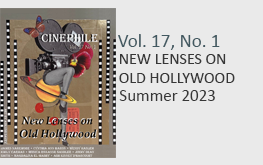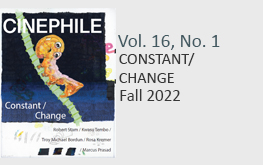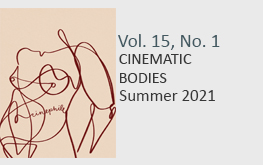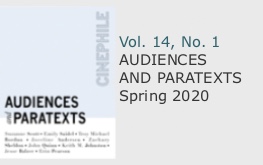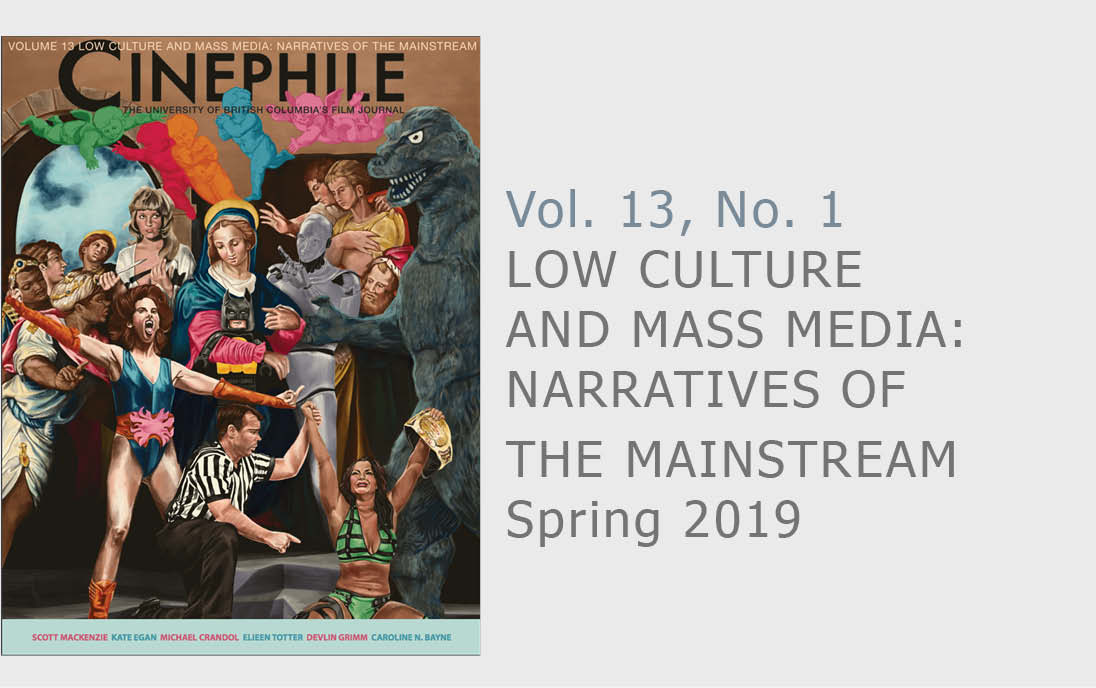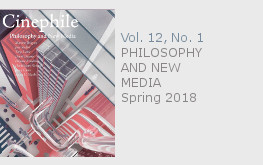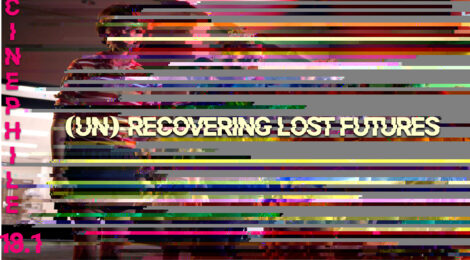
Cinephile 18.1: CALL FOR PAPERS
Cinephile 18.1 – (Un)recovering Lost Futures
The late cultural theorist Mark Fisher asks, “how long can a culture persist without the new?” For Fisher, the postmodern future under capitalist realism, “harbours only reiteration and re-permutation” (6-7). In capitalism’s inability to look beyond itself, media culture has become excessively nostalgic and “incapable of generating any authentic novelty” (63). Accordingly, one can observe a certain malaise surrounding media’s inability to imagine new and alternative futures.
Music, fashion, film, T.V., and digital media have all primarily engaged in nostalgia rather than an imagination of the future. What’s more, this nostalgia has been formalized through an aestheticization of the past — fashion and style trends mimic 70s, 80s, and 90s culture, while the emulation of film grain in digital cinema is more common. One need not look further than recent cultural touchstones such as eighties exploitation in Stranger Things (2016) and Joker (2019), greatest hits soundtracks in Baby Driver (2017) and Guardians of the Galaxy (2014), and contemporary sampling practices evident in Jack Harlowe’s “First Class” to find that innovation in form and material is no longer embraced by the mainstream. Instead, these media foreground the past such that nostalgic pastiche and aesthetic remediation is the text.
We thus echo the statement that opened this call for papers: How long can a culture persist without the new? We call for research that queries the new. Where is it, what is it, for whom does it exist, and when will it come? We call for papers across various disciplines that consider the political, theoretical, and philosophical implications of this cultural malaise – and its potentially opposing forces – as they interface with changing digital media and technology, minor and major cinema, postcolonialism and marginalized identities, algorithms and artificial intelligence, and other cultural phenomena. Papers that are submitted to issue 18.2 of Cinephile may consider but are not limited to the following questions:
1. How might novel forms like social media or artificial intelligence help imagine novel futures? While emulating the past has become a cultural obsession, how does the shift from analogue to digital media enable or disable our capacity to imagine the new?
2. If there is a ‘new’ to imagine, for whom does it exist?
3. Where might we find the new?
4. Is it more apparent in certain parts of the world and, if so, what are the ethical implications of making such a claim?
5. What new forms of pedagogical approaches can we use while teaching with new media?
We encourage submissions from graduate students, postdoctoral researchers, and established scholars. Papers should be between 2,000-3,500 words, follow MLA guidelines, and include a detailed works cited page, as well as a short biography of the author. Submissions should be directed toward SUBMISSIONS@CINEPHILE.CA indicating the intended issue and general inquiries toward INFO@CINEPHILE.CA.
Submissions are due by January 6th 2024.
Cinephile is the University of British Columbia’s film journal, published with the continued support of the Centre for Cinema Studies. Cinephile and UBC Vancouver are located on the traditional, ancestral, and unceded territory of the Musqueam, Squamish, and Tsleil-Waututh Nations of the Coast Salish peoples. Caring for this land since time immemorial, the culture, history, and traditions of the Coast Salish people are inextricable with these regions and enduring in these spaces. Cinephile acknowledges its identity as a product of settler violence and colonization and is committed to learning and engaging with Indigenous voices and histories on the UBC campus. Previous issues have featured original essays by such noted scholars as Lee Edelman, Slavoj Z?iz?ek, Paul Wells, Murray Pomerance, Ivone Marguiles, Matt Hills, Barry Keith Grant, K.J. Donnelly, Robert Stam, and Sarah Kozloff. Since 2009, the journal has adopted a blind review process and has moved to annual publication. It is available both online and in print via subscription and selected retailers.
Incoming editors: Will Riley and Liam Riley
Indicative Bibliography
Brinkema, Eugenie. The Forms of the Affects. Duke University Press, 2014.
Brown, William. Non-cinema: Global Digital Film-making and the Multitude. Bloomsbury Academic, 2018. Accessed 10 September 2023.
Culp, Andrew. Dark Deleuze. Translated by Achim Szepanski, Laika Verlag, 2017. Accessed 10 September 2023. Deleuze, Gilles. “Postscript on the Societies of Control.” October, vol. 59, 1992, pp. 3-7.
Denson, Shane. Discorrelated Images. Duke University Press, 2020. Accessed 10 September 2023.
Dery, Mark. “Black to the Future: Interviews with Samuel R. Delany, Greg Tate, and Tricia Rose.” Flame Wars: The Discourse of Cyberculture, Duke University Press, 1994. Accessed 10 September 2023.
Fisher, Mark. Capitalist Realism: Is There No Alternative? Zero Books, 2009.
Wilderson, Frank B. Afropessimism. WW Norton, 2020. Accessed 10 September 2023.
Zuo, Mila. Vulgar Beauty: Acting Chinese in the Global Sensorium. Duke University Press, 2022. Accessed 10 September 2023.

